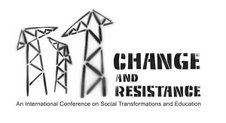Susanne Maurer,
University of Marburg,
Germany
In societies which increasingly tend to privatize and individualize the risks of existence it makes sense to reconstruct the collective dimension of the social – taking into account those multiple and complex differences of origin, belonging, experience and opinion. The “new collective” has to consider heterogeneity. The “new solidarity” has to be built in spite of it, even through the recognition of it. Thus I would like to strengthen the perspective of a “heterogen collectivity”, be it in the context of social movements and political activism or in the context of education and social work.
Institutions and practises of education and social work already carry experience and knowledge which could support and enrich critical movements of resistance and transformation. This paper will especially highlight the quality of social work (its institutions and professionals, procedures and practises) as society’s memory of social conflicts. The history of social work is not only telling individual stories of neediness on one side and (more or less) helpful support on the other. Modern social work is part of the new capitalist bourgeois society where class relationships were (and still are) at risk. It’s also part of the collective efforts of organizing one’s own existential needs and finding ways to build solidarity for the weak and marginalized. These collective efforts came historically out of very different contexts – the working class movement, the women’s movement and also some other currents of the new Civil Society.
Besides its normalizing and affirmative, its repressive and controlling aspects social work stands also for concepts which try to understand, respect and integrate “difference”, and which are perfectly aware of heterogeneity in society in both aspects – unequality and diversity. One could also say: Social work is historically connected with the collective attempt to reduce unequality and make diversity - or choice - possible.
By recognizing the quality of social work as a “memorial site” of social conflicts, productive effects of social change as well as surrender and loss will come into sight. Remembrance of former struggles and awareness of their institutional consequences could open up new perspectives for resistance and transformation.
Subscribe to:
Post Comments (Atom)

No comments:
Post a Comment